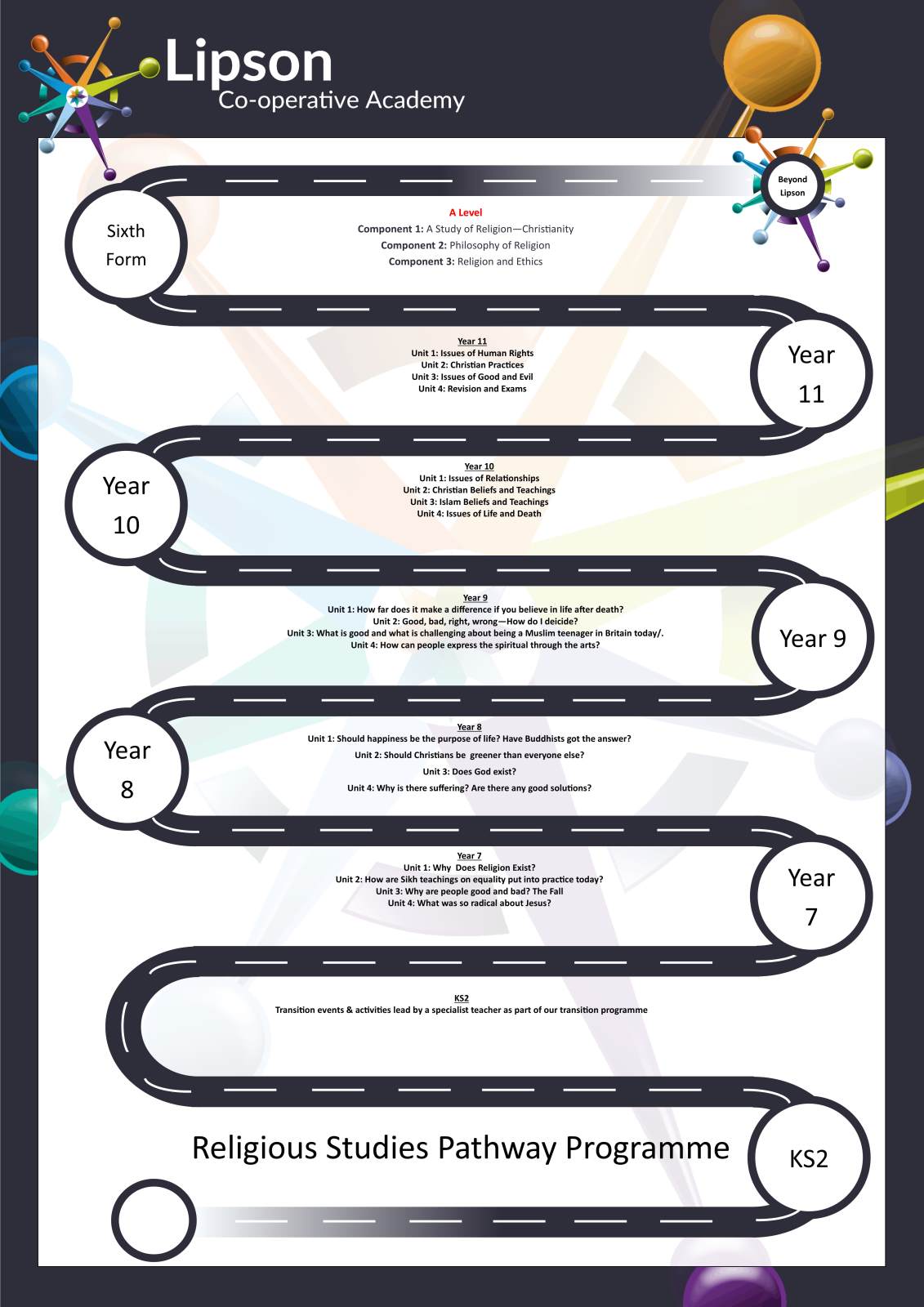Religious Studies
We believe that Religious Studies enables students to enter into a rich discourse about the beliefs and traditions, both religious and non-religious, that have shaped Great Britain and the world. Studying a variety of religions and worldviews allows students to take their place within a diverse, multi-religious and multi-secular society.
Our subject specialists Miss Leeder and Miss Mcvicker aim to ignite a passion for thinking, exploring and questioning the world around us in every classroom. Students are given the opportunity to attempt to answer some of life’s hardest questions, including: What is the value of human life? When does life really begin? What happens after you die?
Meet the team
Madeline Leeder - Head of Religious Studies
Caroline Mcvicker - Teacher
Intent
Our department instils a love of Religious studies in all our students. We crafted our curriculum to be both intellectually challenging and personally enriching and to allow students to make sense of their own place in the world.
Our principal aim is to explore what people believe and what difference this makes to how they live, so that students can gain the knowledge, understanding and skills needed to handle questions raised by religion and belief, reflecting on their own ideas and ways of living.
Curriculum Overview (Click here)
Our Curriculum Learning Pathway

Religious Studies Curriculum Pathway (PDF)
Implementation
What do our students learn?
Religious Studies at Lipson is a content heavy subject, covering a range of questions encouraging students to think critically and have the opportunity to:
- Gain the skills to begin to question the world around them.
- Make sense of diverse beliefs that exist in modern society
- Make connections and challenge the beliefs and worldviews studied.
- Understand the impact of beliefs and worldviews on both the individual and society.
In year 7, students begin by studying key religious concepts such as symbolism, festivals, and the importance of preserving a story outside of the context of any religious belief system. This allows students to apply their knowledge to religious beliefs as they progress throughout their time at Lipson.
Religious Studies covers a wide breadth of topics including, what is so radical about Jesus? Why is there suffering? and what is good and what is challenging about being a Muslim teenager in Britain today? Whilst we study 10 week units so students gain a wide depth of knowledge.
Special note needs to be made that the department will adapt the areas of study at any time to reflect what is happening in the world. This could be looking at changes in the law with regards to medical research or issues raised by the right to die or issues of human rights or the advent of War for instance. This department is dynamic; it reflects the interests of our students and has the ability to be part of a dialogue with often controversial issues as they arise.
What Examination Courses do we follow?
Our students follow Eduqas GCSE Religious Studies. We cover both Christianity and Islam as well as looking at the themes: Isssues of relationships, issues of good and evil, issues of life and death and issues of huamn rights.
We also follow Eduqas A level Religious Studies, covering religion, philosophy and ethics.
How do we enrich our subject beyond the classroom?
Religious studies teaches critical thinking, tolerance and resilience. It promotes curiosity, acceptance and open mindedness - skills that are vital beyond the classroom, equipping students to thrive in the outside world.
At KS4 students are given the opportunity to visit places of worship in their local community, and see how religious beliefs and teachings are put into practice.
How do you measure attainment and progress?
We measure student progress based on the following assessment objectives:
- AO1: Demonstrate knowledge and understanding of religion and belief, including:
- beliefs, practices and sources of authority
- influence on individuals, communities and societies
- similarities and differences within and/or between religions and beliefs
- AO2: Analyse and evaluate aspects of religion and belief, including their significance and influence.

